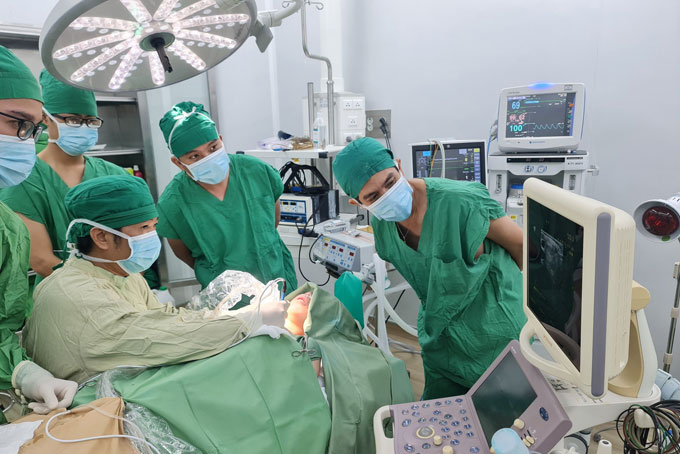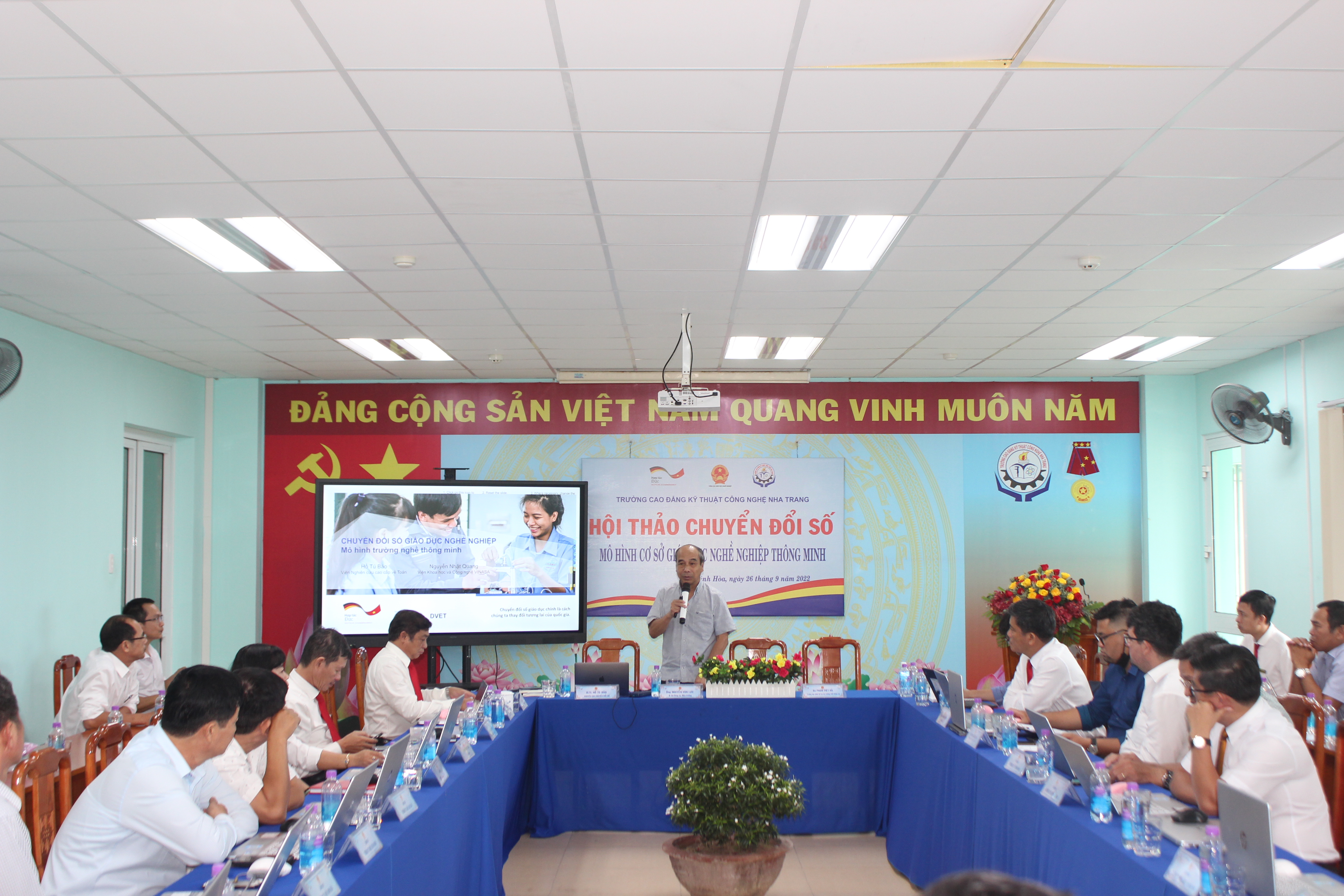
The Department of Thoracic Surgery, Khanh Hoa General Hospital in partnership with Ho Chi Minh City Medicine & Pharmacy University Hospital has deployed Radiofrequency ablation (RFA) for treatment of thyroid conditions...
The Department of Thoracic Surgery, Khanh Hoa General Hospital in partnership with Ho Chi Minh City Medicine & Pharmacy University Hospital has deployed Radiofrequency ablation (RFA) for treatment of thyroid conditions. The advanced technology is believed to be an optimal treatment approach highly appreciated by experts.
A 50-year-old patient in Ninh Hiep Ward, Ninh Hoa Town has been with thyroid nodules for 3 years. RFA approach has been used in the treatment of her thyroid nodules. After the treatment at Khanh Hoa General Hospital, she is in good health with significant reduction in all symptoms.
 Radiofrequency ablation (RFA) for treatment of thyroid conditions at Khanh Hoa General Hospital. Radiofrequency ablation (RFA) for treatment of thyroid conditions at Khanh Hoa General Hospital.
|
According to Dr. Le Viet Huan, Chief of the Department of Thoracic Surgery, Khanh Hoa General Hospital, there are 3 basic approaches for treating autonomously functioning thyroid nodules. They are medications, open surgery and endoscopic surgery. Each treatment option has its own risks and benefits; the treatment therefore are tailored to meet specific needs of patients.
Anti-thyroid drugs are commonly used to decrease thyroid hormone production, but they are not as definitive as surgery or radioactive iodine ablation which is a minimally invasive treatment option performed by interventional radiology as an alternative to surgery in patients with thyroid nodules.
For 6 years, some national hospitals, namely Ray Hospital, Bach Mai Hospital, Ho Chi Minh City Medicine & Pharmacy University Hospital, Central Military Hospital 108, National Hospital of Endocrinology and Hanoi Medical University Hospital have used RFA approach in the treatment of thyroid nodules. This is believed to be an optimal treatment approach in tumor removal without incision or scars.
Compared with other procedures, radiofrequency ablation has proved safe and effective. Radiofrequency ablation of benign nodules demonstrates volume reductions of 40–60% after 3 months and 90-95% after 1 year while solving nodule-related clinical problems.
Radiofrequency ablation takes about 15 minutes to complete. After a radiofrequency ablation procedure, patients are advised to have a rest, remain at hospital for 2 - 3 hours or 1 day and then they can return to their normal activities.
Most thyroid nodules are common; only 4–7% of nodules are cancerous. Small nodules may not cause any problems. However, some nodules become so large that they can lead to shortness of breath or difficulty in swallowing and thyroid disorders.
T.L
Translated by N.T










